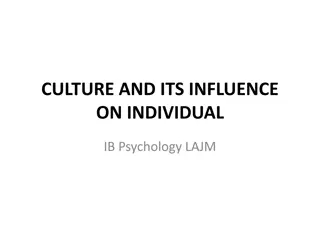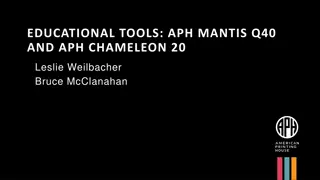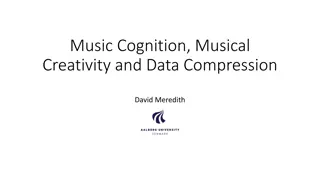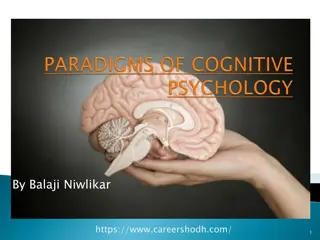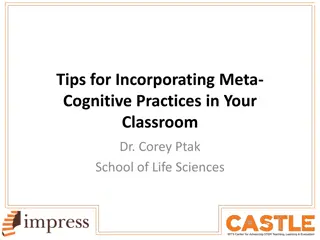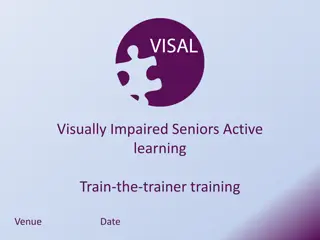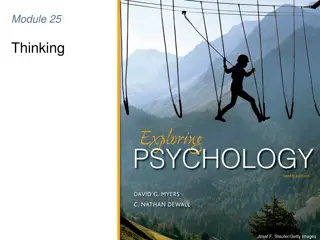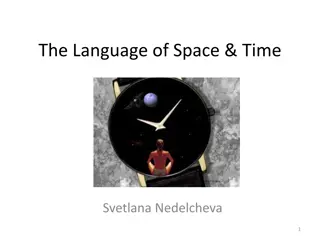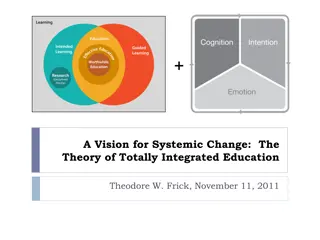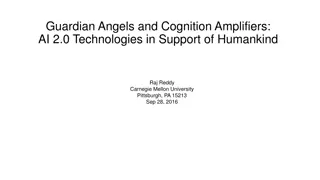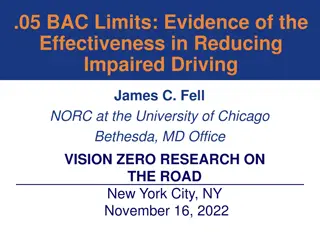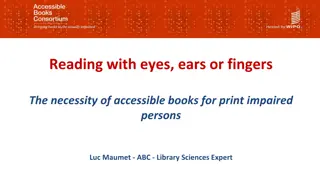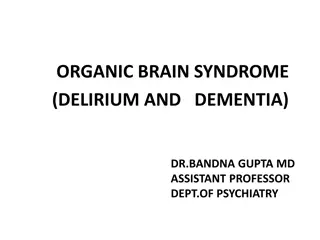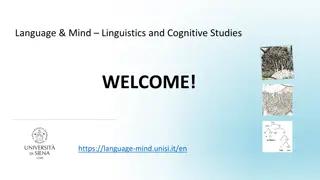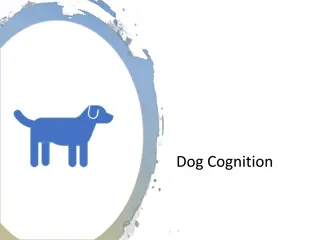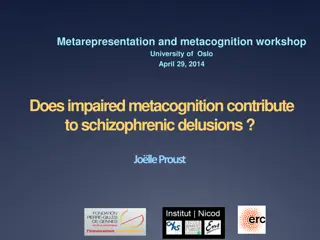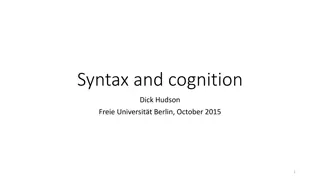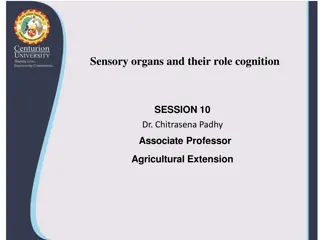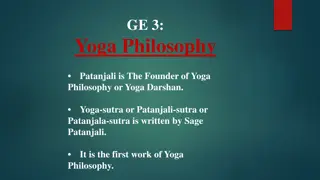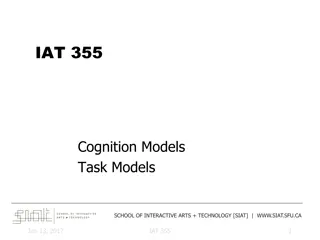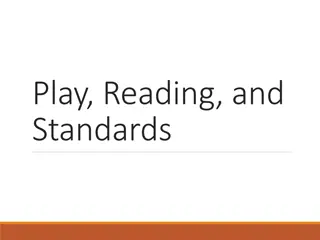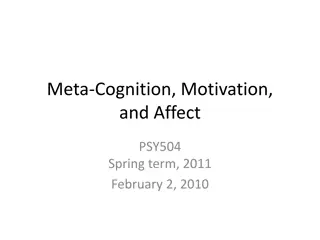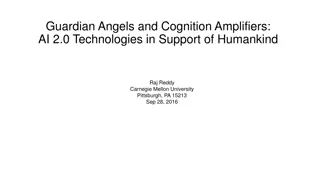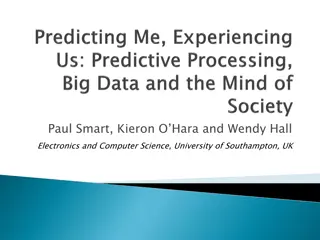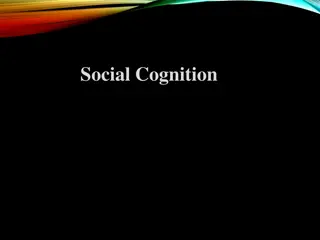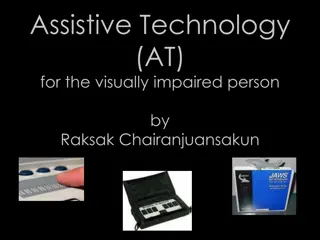Vitamin A Deficiency (Hypovitaminosis A)
Learn about the causes, symptoms, and effects of Vitamin A deficiency, including night blindness, corneal keratinization, and impaired immune function. Explore the epidemiology and pathogenesis of this condition.
0 views • 13 slides
Unveiling the Impact of the 072 MARC Tag in Library Services
The 072 MARC tag, initially overlooked, has emerged as a vital tool for automating book selection for visually impaired patrons and enhancing search capabilities in the National Library Service Catalog. Through its customization and utilization, this tag has bridged genres, improved library circulat
1 views • 16 slides
Understanding Anaemia and Infections in Relation to Health
Anaemia can result from various causes such as blood loss, increased destruction of red blood cells, and impaired production, often linked to infections and chronic diseases. Parasites, bacteria, and viruses play a role in the progression of anaemia, affecting the body's ability to produce and utili
3 views • 10 slides
Understanding Significant Harm in Child Protection Cases
In child protection cases, significant harm must be proven for court intervention. Harm can include ill-treatment or impaired health and development. The state may intervene if necessary, but diverse parenting standards are tolerated. Evidence-based findings are crucial, and local authorities must p
0 views • 11 slides
Understanding the Impact of Culture on Behavior and Cognition in IB Psychology
Explore the diverse facets of culture's influence on individual behavior and cognition in IB Psychology through topics like cultural origins, norms, and Hofstede's dimensions. Dive into mind mapping, textbook comparisons, and research studies to grasp the profound effects of culture on human psychol
2 views • 41 slides
APH Mantis Q40 and Chameleon 20: Educational Tools for Visually Impaired
Explore the world of APH Mantis Q40 and Chameleon 20, innovative devices that support literacy and learning for visually impaired individuals. Gain insights into how these tools work with computers and mobile devices, enhance braille access, and provide math support. Discover features like braille d
0 views • 37 slides
The Relationship Between Music, Cognition, and Data Compression
Music composition involves creating novel music for specific audiences. When we listen to music, our brain processes sound data through compression, seeking patterns and relationships to understand and appreciate the music better. This cognitive process is crucial for perception, cognition, and crea
0 views • 12 slides
Exploring Paradigms of Cognitive Psychology
Cognitive psychology, a branch of psychology, delves into mental processes like thinking, perceiving, remembering, and learning. This field views individuals as information processors, with paradigms guiding research methodologies. Key approaches include Information Processing, Connectionist, Evolut
0 views • 18 slides
Enhancing Learning Through Metacognitive Practices
Explore the significance of metacognition in education, including understanding metacognitive processes, knowledge of cognition, regulation of cognition, benefits for students, importance of self-reflection, and exercises that promote metacognition such as retrospectives and exam wrappers. Discover
0 views • 13 slides
Enhancing Communication for Hearing-Impaired Individuals Through TELEGRAM
Considerations beyond traditional hearing aids are crucial for maximizing communication abilities in hearing-impaired individuals. The TELEGRAM approach prompts audiologists to assess various communication needs comprehensively, covering areas like telephone use, employment, entertainment, and famil
1 views • 28 slides
Senior Active Learning for Visually Impaired: Train-the-Trainer Program
This program aims to equip trainers with the knowledge and skills to facilitate active learning sessions for visually impaired seniors. The objectives include enhancing participants' skills, increasing accessibility to adult learning, and combatting isolation. Background information on ageing popula
0 views • 36 slides
Patient Collaboration in Research: Journey of a Hearing Impaired Medical Student
A journey of perseverance and dedication unfolds as a hearing-impaired individual thrives in the world of medicine, engaging in collaborative research on Usher syndrome. From her educational challenges to her impactful thesis work, this individual's commitment to patient involvement and genetic corr
0 views • 17 slides
Understanding Section 14(c) of the Fair Labor Standards Act
Section 14(c) of the Fair Labor Standards Act allows for the payment of subminimum wages to workers with disabilities when their productivity is impaired. The Wage and Hour Division of the U.S. Department of Labor oversees compliance with this provision, aiming for a vigorous and effective program.
0 views • 126 slides
Understanding TMDL Development in Watershed Management
Explore the essential concepts of Total Maximum Daily Load (TMDL) development in watershed management, including the significance of impaired streams, numeric and narrative criteria for water quality standards, and the process of developing TMDLs to restore and maintain healthy water bodies. Gain in
5 views • 30 slides
Understanding Cognition and Decision Making
Cognition encompasses mental activities like thinking, knowing, and remembering, while concepts simplify thinking by grouping similar objects. Cognitive strategies and obstacles in problem-solving, such as algorithms and confirmation bias, also play a crucial role. The "Aha!" moment reflects sudden
0 views • 15 slides
Exploring the Embodied Nature of Human Cognition
Exploring the concept of embodied cognition, this content delves into how human perception and understanding are shaped by physical experiences and interactions with the world. From spatial scenes to the containment concept, it highlights the fundamental role of the body in shaping our cognitive pro
0 views • 37 slides
Enhancing Education Through Totally Integrated Approach
Theodore W. Frick's Theory of Totally Integrated Education (TIE) emphasizes aligning student cognition, intention, and emotion with authentic learning tasks to create worthwhile education. TIE focuses on systemic change in education and provides a vision for improving learning outcomes by connecting
0 views • 55 slides
Guardian Angels and Cognition Amplifiers: Enhancing Human Intelligence with AI 2.0 Technologies
Harnessing the power of AI 2.0 technologies, Guardian Angels and Cognition Amplifiers (Gats and Cogs) augment human intelligence by continuously monitoring user activity patterns and intentions through smartphone sensors. These tools enable automation of daily activities, personalized assistance, an
0 views • 27 slides
Understanding TMDL Development in West Virginia
TMDL development in West Virginia focuses on restoring impaired streams by setting pollutant budgets. The process involves defining impaired waters, implementing monitoring plans, and complying with Clean Water Act regulations. Numeric and narrative criteria are used to evaluate water quality standa
0 views • 30 slides
Effectiveness of Lower BAC Limits in Reducing Impaired Driving
Lowering the BAC limit for driving to .05 has been shown to reduce impaired driving incidents significantly. Virtually everyone is impaired at .05 BAC, leading to a marked increase in crash risk. While most states adhere to the .08 BAC limit, some like Utah have already adopted the .05 limit. Even t
1 views • 21 slides
Neuromorphic Computing: Bridging the Gap Between Silicon and Human Cognition
This research delves into neuromorphic computing, a cutting-edge field that merges principles from biology and silicon technology to advance cognitive processing. The study explores top-down approaches, drawing inspiration from the auditory cortex for DNS, and bottom-up strategies to enhance CPU arc
0 views • 17 slides
Enhancing Accessibility: Importance of Accessible Books for Print Impaired Individuals
Diving into the necessity of accessible books for print impaired persons, this content explores various methods of reading such as Braille, audiobooks, and large print formats. It emphasizes the significance of equal access to reading materials for the general population, discussing the role of Brai
0 views • 16 slides
Understanding TMDL Development in West Virginia
Explore the TMDL development process in West Virginia, including water quality standards, impaired waters, and the role of TMDLs in restoring water quality. Learn about the criteria for impaired streams, numeric and narrative standards, and the assessment methods used to identify sources of impairme
0 views • 28 slides
Understanding Organic Brain Syndrome & Delirium
Overview of organic brain syndrome and delirium, including definitions, clinical features, and management. Delirium, a common psychiatric syndrome, affects consciousness, cognition, and perception, leading to increased morbidity and mortality. Recognize core symptoms, such as disturbances in conscio
0 views • 37 slides
Master in Language and Mind: Interdisciplinary MA Program at University of Siena
The Master in Language and Mind is an interdisciplinary program focusing on language as a human cognitive capacity, offering two curricula in Linguistics and Cognition and Philosophy and Cognition, with opportunities for double degree programs and collaborations with international universities.
0 views • 21 slides
Dog Cognition: Understanding the Advanced Cognitive Abilities of Dogs
Exploring the fascinating realm of dog cognition reveals how dogs exhibit advanced cognitive abilities beyond that of many non-human primates. From social learning to strong discrimination learning, contingency reversal, and object manipulation, dogs showcase remarkable intelligence that continues t
0 views • 35 slides
Understanding Impaired Metacognition in Schizophrenic Delusions
Impaired metacognition may contribute to schizophrenia delusions, affecting how individuals perceive reality. Delusions are persistent irrational beliefs that can stem from various causes, including mental illness. Different types of delusions such as delusions of control and reference are observed
0 views • 55 slides
Evolution of Syntactic Theory: From Psychology to Cognition
Syntactic theory has evolved significantly, influenced by psychology and cognition. The debate between phrase structure and dependency structure continues, with a shift towards integrating cognitive principles. Cognitive linguistics, including Cognitive Grammar and Construction Grammar, play a key r
0 views • 31 slides
Understanding the Role of Sensory Organs in Cognition
Leonardo da Vinci emphasized the significance of the five senses in experiencing life fully. Our sensory organs - sight, smell, hearing, touch, and taste - play vital roles in transmitting information to the brain for interpretation. Each sense has distinct functions essential for perceiving and und
0 views • 9 slides
Understanding Yoga Philosophy: Insights from Patanjali's Yoga Sutra
Yoga philosophy, founded by Sage Patanjali, explores the union of mind and body through practices like Viveka and Cittavritti. The Yoga Sutra delves into stopping mental modifications and identifies five types of Cittavrittis. These include Pramana (valid knowledge), Viparyaya (false cognition), Vik
0 views • 26 slides
Cognition Models in InfoVis: Understanding Knowledge Creation Process
Visualization plays a key role in aiding cognition by supporting knowledge creation and seeking tasks through process models and task taxonomies. Understanding the cognitive aspects of information visualization is crucial for aiding comprehension and knowledge understanding, as demonstrated by the u
0 views • 41 slides
Early Learning Guidelines for Language, Literacy, and Cognition
Explore the developmental milestones in language, literacy, and cognition for children ages 0 to 5 through various standards and guidelines, including WA Early Learning Guidelines, Teaching Strategies Gold, Common Core State Standards, and more. Encourage play, storytelling, writing, and communicati
0 views • 6 slides
Enhancing Understanding of Meta-Cognition, Motivation, and Affect in Psychology Classes
The content discusses survey responses and feedback on a psychology class focused on meta-cognition, motivation, and affect. Students shared insights on the best and worst parts of the discussions, highlighting the importance of staying on topic. The format of lectures followed by discussions was al
0 views • 53 slides
Understanding TMDL Development in Water Quality Management
Exploring the Total Maximum Daily Load (TMDL) development process for impaired streams, including definitions of TMDL, impaired streams, numeric criteria for pollutants like fecal coliform bacteria and selenium, and narrative criteria to protect aquatic ecosystems. The content covers the necessity o
1 views • 24 slides
Scenic Views of Clearest and Most Impaired Days Across Various Locations
Explore a collection of images showcasing the stark contrast between the clearest and most impaired days in different locations such as Presque Isle, Penobscot Nation, Casco Bay, and more. Each image captures the essence of these days with vivid clarity, inviting viewers to appreciate the beauty and
0 views • 26 slides
Guardian Angels and Cognition Amplifiers: Transforming Human Intelligence with AI 2.0 Technologies
This explores the integration of AI technologies to enhance human cognition through the creation of personalized Guardian Angels (Gats) and Cognition Amplifiers (Cogs). These tools leverage multimodal sensors on smartphones to monitor activities, infer intentions, and automate daily tasks. The syste
0 views • 27 slides
Understanding the Brain's Predictive Processing and Cognitive Architecture
Exploring the fascinating realm of brain function and cognition, this content delves into topics like deep learning systems, big data implications, the predictive nature of the brain, cortical hierarchy, active inference, generative models, and cognitive architectures explaining various mental condi
0 views • 21 slides
Understanding Social Cognition and Schemas
Social cognition explores how people perceive and interpret social information, using automatic and controlled thinking processes. Schemas are mental structures that help us organize knowledge about the social world, affecting how we remember, interpret, and act upon information. The self-confirming
0 views • 23 slides
Understanding Total Maximum Daily Load (TMDL) Development in West Virginia
Explore the process of TMDL development in West Virginia, including background on water quality standards and impaired waters. Learn about the significance of TMDLs in maintaining healthy streams and the criteria for determining impaired streams, such as numeric and narrative standards. Discover how
0 views • 28 slides
Assistive Technology for Visually Impaired Individuals
Assistive Technology (AT) plays a crucial role in improving the quality of life for visually impaired individuals by providing tools such as Braille readers, JAWS software, and electronic canes. These technologies enable them to access printed materials, write, navigate, and perform daily tasks inde
0 views • 37 slides




